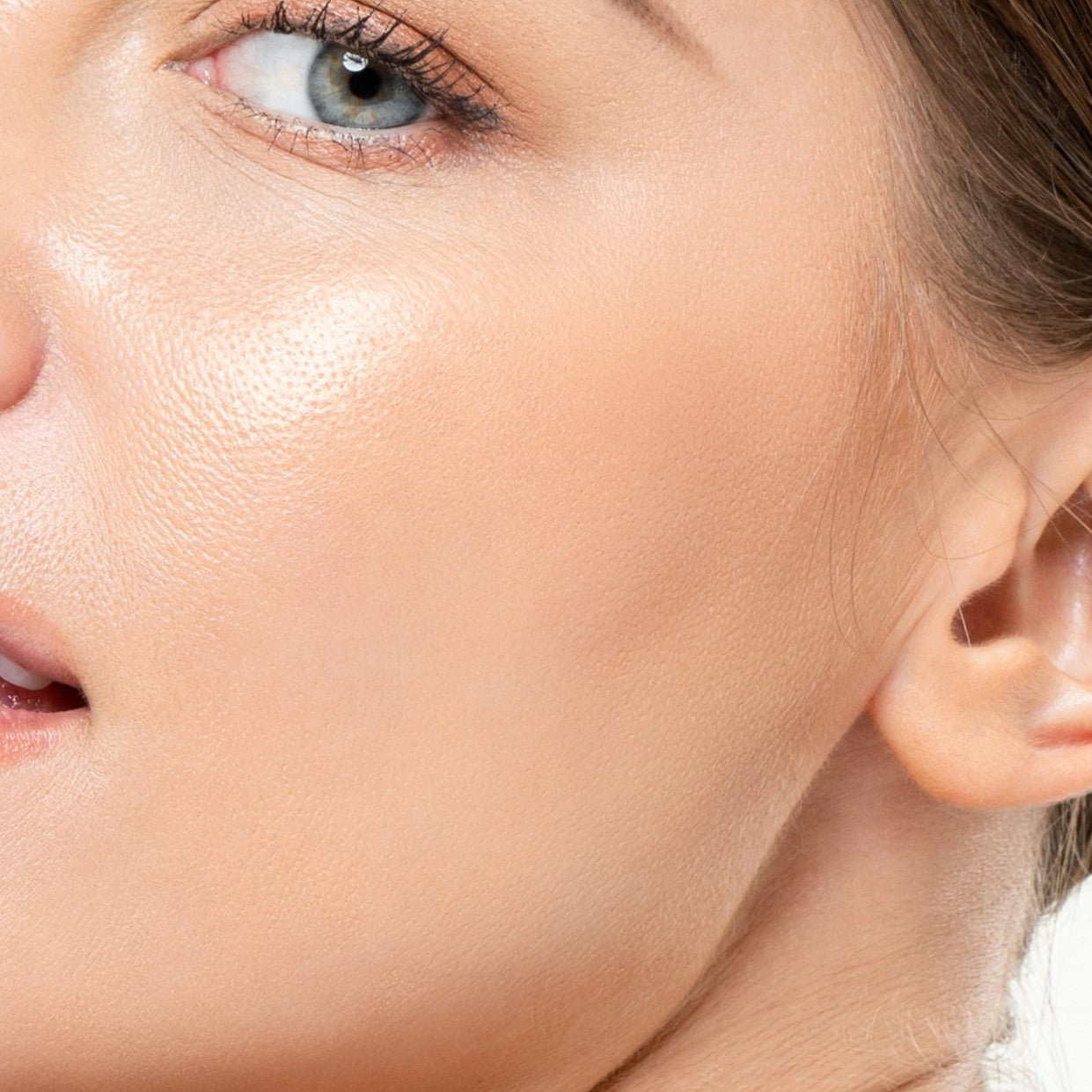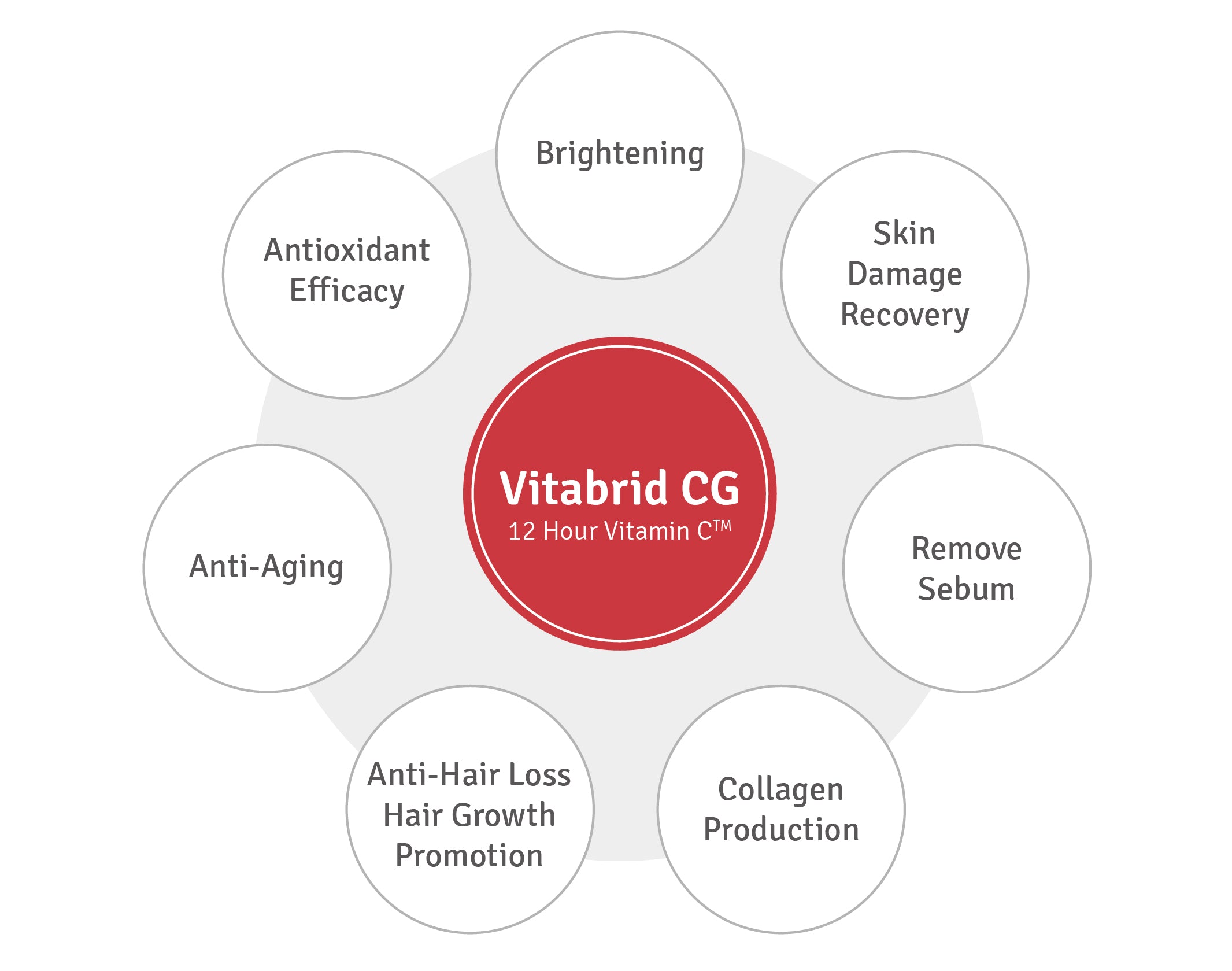Key benefits of Vitamin C
Promotes collagen synthesis(1)
Collagen production starts to decrease by 1% per year(2), especially from mid-20s.(4) Vitamin C, as one of the vital components required in the human body, helps promote collagen synthesis to further fight off signs of aging whilst also stimulating collagen production for firmer-looking skin from the inside out.

Delivers antioxidants benefit(1)
The UV exposure reduces the availability of vitamin C level in the skin(1), and generates free radical damage on the skin that accounts for up to 90% of visible skin ageing(5). Vitamin C, the safest and the most potent antioxidants provide photoprotection and neutralize oxidative stress helps prevent skin from free radical damage by donating or transferring its electron.(3)

Regulates melanin production for bright and even skin tone(1)
Vitamin C helps inhibit melanin production and has an anti-inflammatory function to prevent skin from pigmentation, leaving an uneven skin tone bright and even.

Promotes wound healing and reduces inflammation(1)
Collagen production starts to decrease by 1% per year(2), especially from mid-20s.(4) Vitamin C, as one of the vital components required in the human body, helps promote collagen synthesis to further fight off signs of aging whilst also stimulating collagen production for firmer-looking skin from the inside out.

References
1. Pumori SK, Vitamin C in dermatology, Indian Dermatology Online Journal 2013 Apr-June 4(2) 143-146
2. Ganceviciene, Ruta et al. “Skin anti-aging strategies.” Dermato-endocrinology vol. 4,3 (2012): 308-19. doi:10.4161/derm.22804
3. Al-Niaimi, Firas, and Nicole Yi Zhen Chiang. “Topical Vitamin C and the Skin: Mechanisms of Action and Clinical Applications.” The Journal of clinical and aesthetic dermatology vol. 10,7 (2017): 14-17.
4. Sam Shuster, Martin M.Black and Eva McVitie. "The influence of age and sex on skin thickness, skin collagen and density" British Journal of Dermatology (1975) 93, 639
5. M. A. Farage, K. W. Miller, P. Elsner and H. I. Maibach. "Intrinsic and extrinsic factors in skin ageing: a review" International Journal of Cosmetic Science vol.30,2(2008). 87-95
Limitations of Vitamin C
Most of the vitamin C that you ingest is used by your body. So less than 1% actually reaches your skin.
Vitamin C is a nutrient that you definitely want to supplement daily. However, for it to be effective on your skin and scalp, you need to apply it directly to those areas.


Even if you consume large quantities of vitamin C in fruits, the excess amount of vitamin C is discharged by the body.
It is impossible to accumulate vitamin C in the body, so it is recommended to take it orally every day and apply it to your skin and scalp as needed.
Even if you apply it directly to the skin, it may not be effective.
Our skin barrier protects the skin from external substances, making it difficult for normal vitamin C to be delivered to the skin. In addition, vitamin C has a weakness of immediately oxidizing when it comes into contact with water, air, heat and light. Creating effective vitamin C has been a challenge for many researchers.


Many cosmetics companies use a chemically formulated vitamin C derivative to compensate for its weaknesses.
Vitabrid C has harnessed the power of pure vitamin C…naturally.
Our Technology

Using LDH technology, pure vitamin C is encapsulated in layers of bio-friendly minerals to store and preserve. Once applied topically it delivers active vitamin C effectively and continuously to the skin for over 12 hours.

12 Hour Vitamin C

Benefits of Vitamin C

Inventor’s Message
